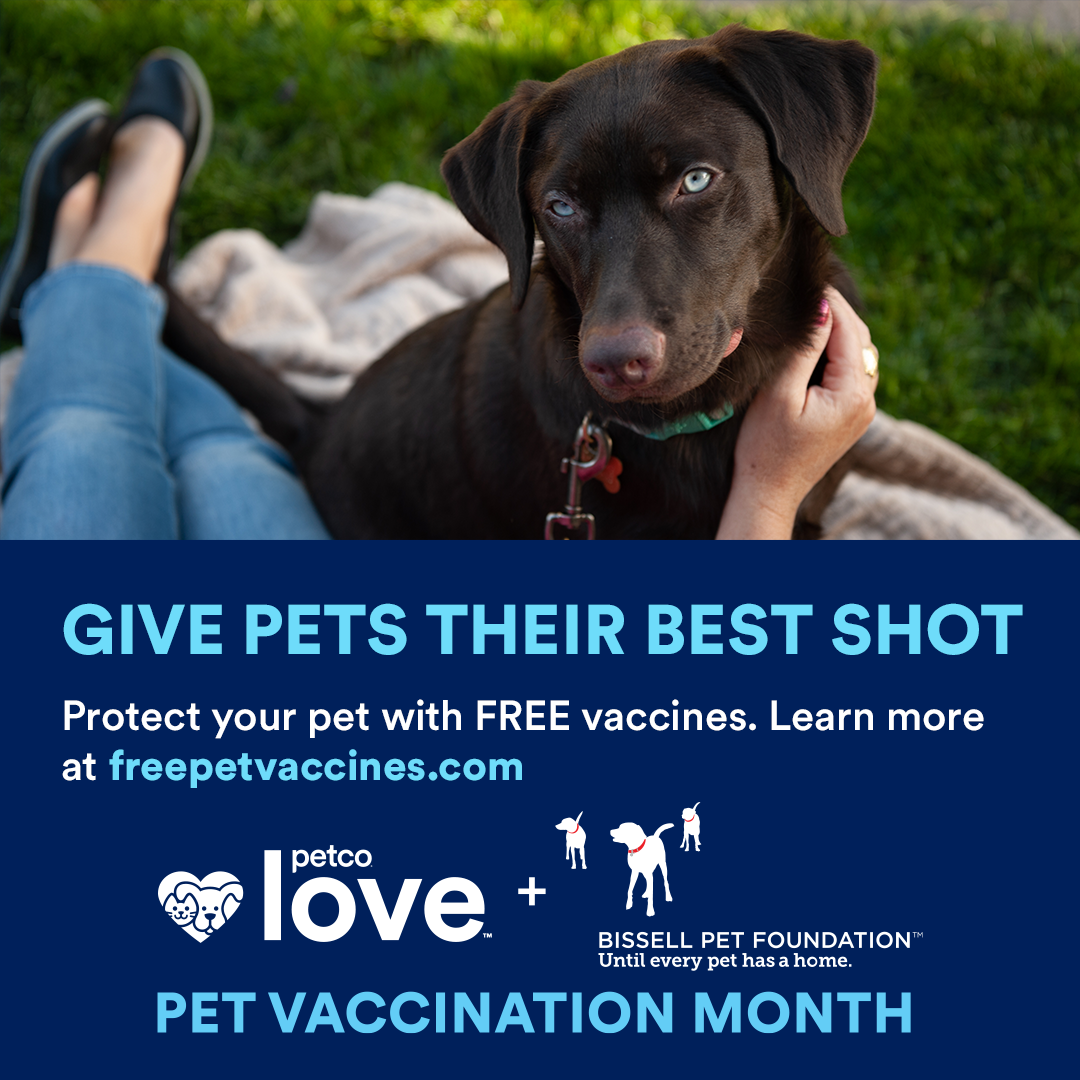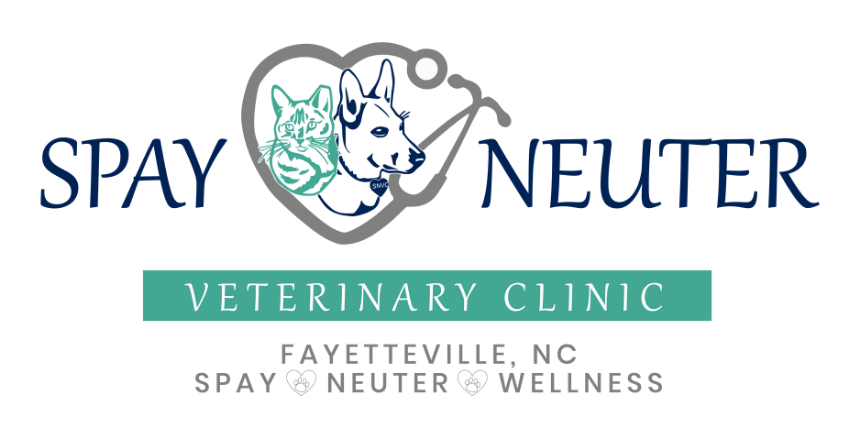Pet Wellness
SNVC offers wellness appointments as “drop-off” appointments which are available multiple days of the week at our Bragg Blvd location. For drop-off appointments scheduled Monday – Thursday, you would drop off between 8:00am-8:30am with pick up later in the afternoon around 3pm. For drop-off appointments scheduled on Friday, drop-off is between 8:00-9:00 and pick up is at noon. We close at 1pm on Fridays, so all pets would have to be picked up at noon.
Our wellness appointments are not designed for sick or injured pets, only for wellness services, such as vaccines. Services that are offered by SNVC include: general vaccines, heartworm tests and prevention, flea prevention, wellness bloodwork, fecal tests, and heartworm treatment. If concerns are found at the exam, we will treat basic ear infections. SNVC does not manage complex medical issues, see pets for vomiting/ diarrhea/ weight loss, eye concerns, or treat injured pets. If you have any of these issues with your pet, we recommend you see a full-service veterinary clinic for assistance.
The appointment request form requires you to submit the $25 payment for the appointment booking fee. The booking fee covers the price of the physical exam if you show up for your scheduled appointment but is lost if you do not show up for your appointment or need to change the appointment with less than 10 days’ notice.
Since our mission is focused on reducing pet overpopulation, we strongly believe that ALL cats and dogs should be altered prior to having a litter. To help encourage this, in addition to the exam and other fees, intact animals will be charged an additional $25 per wellness visit. This fee is credited back at the time of surgery IF you schedule and pay the booking fee for the spay or neuter surgery appointment prior to the end of your wellness appointment.
Canine Vaccines
Rabies
Rabies virus affects the nervous system. It is spread from animal to animal via saliva through bite wounds and is carried by wildlife (including racoons, skunks, bats and foxes). This virus is always fatal and vaccination is the only prevention. Infected animals, including unvaccinated pets, can spread rabies virus to humans so it is very important to keep your pet up to date on this vaccine. We recommend that all pets get vaccinated for rabies when they are between 12 -16 weeks old. Pets are required to have the Rabies vaccine at the time of their spay or neuter here at SNVC. North Carolina law requires that all dog and cats are vaccinated by 16 weeks of age and be kept up to date on their rabies vaccine through their life.
DHPP (Distemper, Hepatitis, Parvo, Parainfluenza)
This is a 4-in-one vaccine that protects against the following diseases:
Distemper virus is a disease that causes symptoms including fever, nasal discharge, diarrhea, seizures, and other neurologic signs. This disease is spread by infected wildlife including foxes, coyotes, racoons and skunks. While some dogs may survive distemper, they are often left with permanent neurologic deficits.
Canine hepatitis causes a wide variety of symptoms ranging from fever, lethargy and anorexia to sneezing, nasal discharge, conjunctivitis and even death. This virus is spread by infected animals including foxes, coyotes and dogs. Canine hepatitis can cause sudden death in young puppies and is sometimes referred to as “fading puppy syndrome”.
Parvovirus is a potentially fatal disease that infects puppies and unvaccinated adult dogs. Parvovirus causes bloody diarrhea, vomiting and anorexia (not eating). Parvovirus is spread via oral contact with bodily fluids from another infected animal and is highly contagious. All canids can carry/become infected with parvovirus including dogs, foxes, coyotes and wolves.
Parainfluenza is one of the causes of kennel cough. It causes respiratory signs such as coughing and sneezing. Parainfluenza is highly contagious between dogs, however it is not typically fatal.
The American Veterinary Medical Association considers DHPP to be a “core vaccine” meaning that all dogs should be kept up to date on this vaccine.
Leptospirosis
The leptospirosis vaccine protects against the bacteria, Leptospira. This bacteria attacks the cells of the kidneys and liver leading to damage of these organs. Symptoms of leptospirosis include increased urination, vomiting and yellowing of the whites of the eyes or of the gums. Wildlife such as mice, raccoons, and deer are often infected and pass the Leptospira bacteria through their urine. The bacteria can then be transmitted to dogs if they drink water that is contaminated (such as out of ponds, streams or puddles). This disease can also be transmitted to humans. Leptospirosis is considered a “core vaccine” and is strongly recommended due to the increase in occurrence of the disease and the human health risk.
Bordetella (a.k.a. Kennel Cough)
This vaccine protects against the Bordetella bacteria which causes disease in the airways and lungs of dogs. Bordetella causes a dry, hacking cough, hence its nickname “Kennel Cough”. Because this bacteria is easily spread between dogs, Bordetella vaccines are often required by groomers, dog parks, dog boarding facilities and to attend dog training classes. NOTE: “Kennel Cough” is a complex of infectious agents (bacteria and viruses) leading to respiratory infection and coughing. Vaccination against the Bordetella bacteria will help lessen the severity of this disease complex but may not entirely prevent it. This is an elective vaccine that is recommended for dogs who will be in contact with other dogs outside of their housemates.
Heartworm Prevention
The only way to avoid a heartworm infection is by using heartworm prevention. There are several options for heartworm prevention, ranging from monthly pills, topical medications or a 6-month injection. Speak with us about what option is best for your pet. Heartworm prevention is recommended year-round in North Carolina. As a bonus, many heartworm preventative also provide deworming against intestinal parasites.
Prior to starting heartworm prevention in a dog 6 months old or older, he/she should have a heartworm test to verify that they are negative for heartworms. This test is not needed if they are under 6 months as it is unlikely to show positive that early. It can be very dangerous for your dog to start heartworm prevention if they are already infected with heartworms. Testing is recommended yearly to ensure that your dog is still negative. Heartworm testing is not required in cats.
Flea & Tick Prevention
Parasite Prevention
We know your pet’s health is a top concern for you and your family. We want to help keep your pet safe, comfortable, and happy. That’s why we’ll keep your pets protected from heartworms. We will work with you to set up the best flea and tick preventive plan for your pets.
Feline Vaccines
Rabies
Rabies virus affects the nervous system. It is spread from animal to animal via saliva through bite wounds and is carried by wildlife (including racoons, skunks, bats and foxes). This virus is always fatal and vaccination is the only prevention. Infected animals, including unvaccinated pets, can spread rabies virus to humans so it is very important to keep your pet up to date on this vaccine. We recommend that all pets get vaccinated for rabies when they are between 12 -16 weeks old. Pets are required to have the Rabies vaccine at the time of their spay or neuter here at SNVC. North Carolina law requires that all dog and cats are vaccinated by 16 weeks of age and be kept up to date on their rabies vaccine through their life.
FVRCP (Feline Viral Rhinotracheatis, Calicivirus, and Panleukopenia)
This is a 3-in-one vaccine that protects against the following diseases:
Feline viral rhinotracheitis is a respiratory disease that causes fever, sneezing, nasal discharge and conjunctivitis. It is highly contagious among cats but thankfully is not generally fatal.
Calicivirus is another respiratory disease that causes fever, eye and nose discharge and painful sores in your cat’s mouth. Due to the painful sores, cats will generally stop eating when infected with Calicivirus which can potentially lead to death, particularly in kittens.
Panleukopenia, also known as feline parvovirus, is a potentially fatal disease that is highly contagious amongst cats. It causes symptoms such as vomiting, diarrhea and lethargy. The vomiting and diarrhea can quickly lead to dehydration which can kill cats, especially young kittens.
The American Association of Feline Practitioners Considered FVRCP to be a core vaccine meaning that all cats should be kept up to date on this vaccine throughout their lifetime.
Feline Leukemia
Feline Leukemia is a virus that causes cancer in cats. It is highly contagious and is spread via saliva meaning that an infected cat can transmit the disease through bite wounds, grooming or sharing a food/water dish with a non-infected cat. The estimated lifespan of a cat with feline leukemia is 4 years so preventing the disease via vaccination is key. The American Association of Feline Practitioners recommends that all kittens be vaccinated for feline leukemia. The reasoning is that kittens are curious and are therefore prone to escape outside even if they are intended to be indoor only pets. It is also recommended that all adult cats who go outside are vaccinated against feline leukemia.
Prior to a cat being vaccinated for feline leukemia for the first time, a feline leukemia test should be run to ensure that they are not already carrying the disease. The test involves a simple blood test that can be performed at our clinic.
Deworming
Animals pick up intestinal parasites such as tapeworms, hookworms, roundworms, and whipworms from their environment, fleas, and other animals. Intestinal parasites or “worms” can cause diarrhea, blood loss, malnutrition, poor growth, and in severe cases, death. You may see signs of them in the vomit or stool of your pet. It is also important to remember that some parasites can be transmitted to humans, especially children, so it is critical to get your pet diagnosed and treated. These worms can be easily diagnosed with a fecal (poop) test and treated with a medication depending on the type of parasites present. If your pet has intestinal parasites it is important to remember to include a monthly heartworm medication and a flea prevention to keep them from getting re-infected with the parasites. Please ask us about yearly fecal testing to check your pet for intestinal parasites
Microchipping
If we administer a microchip in your pet we will complete the initial registration with the information you have provided to us. Please ensure that you create a login to be able to update your contact information if it changes in the future.
Monthly Promotions
Take advantage of our monthly specials!

We’re proud to be partnering with Petco Love in their commitment to 1 million free pet vaccines.
Almost 30% of pet parents do not take their pets for their annual vet visit, making pets in our communities vulnerable to vaccine-preventable diseases. We’re working with @PetcoLove to provide free pet vaccines for pets in need and help end life-threatening diseases in pets. These diseases that are preventable by vaccines are impacting our pets nationally. Parvovirus, distemper in dogs, and panleukopenia in cats are seen too often impacting our most vulnerable pets. That’s why we’re taking action to help keep your pets healthy and providing free pet vaccines directly to you!
Watch our Facebook page and website for information on vaccine clinics and other events at which we will be distributing free vaccines!
Together, with Petco Love, we can keep the pets in our community healthier and save more pet lives! #PetcoLoveVax #PetcoLovePartner
